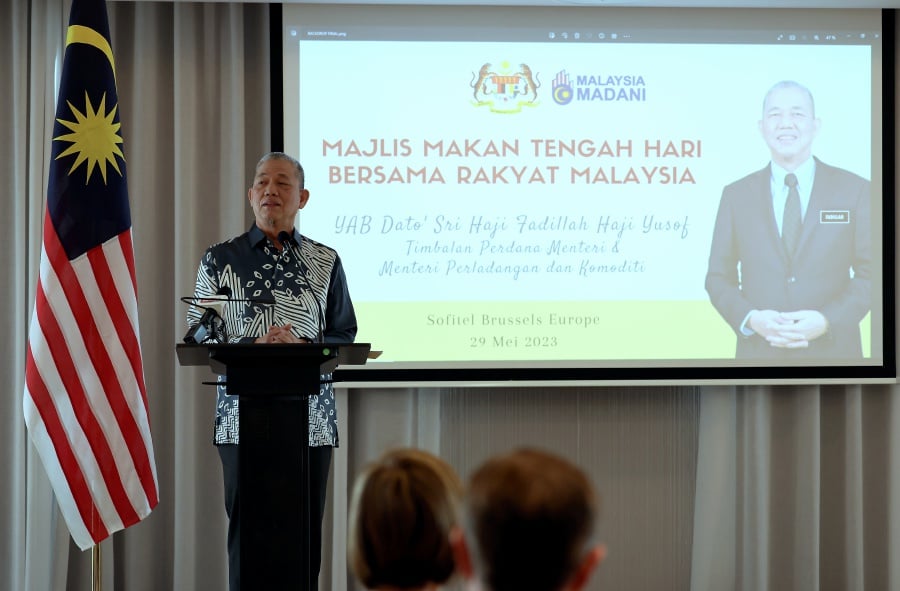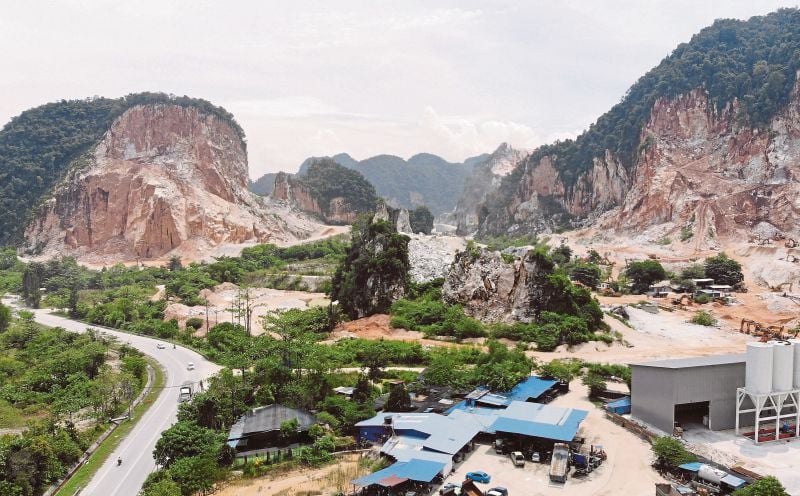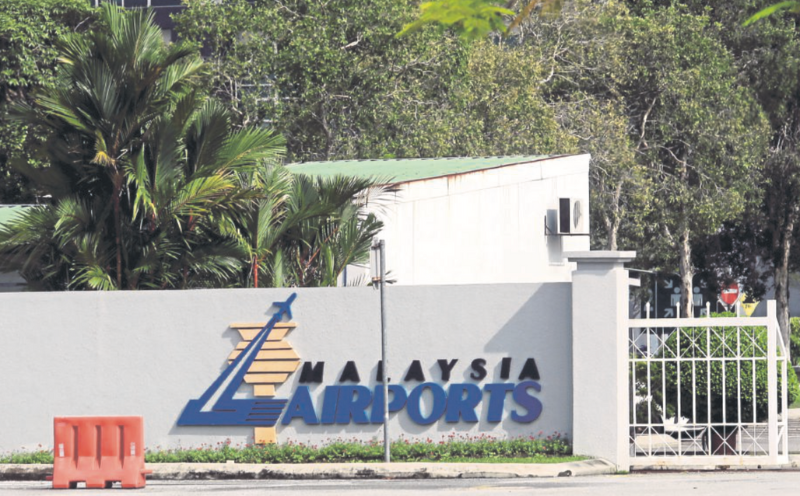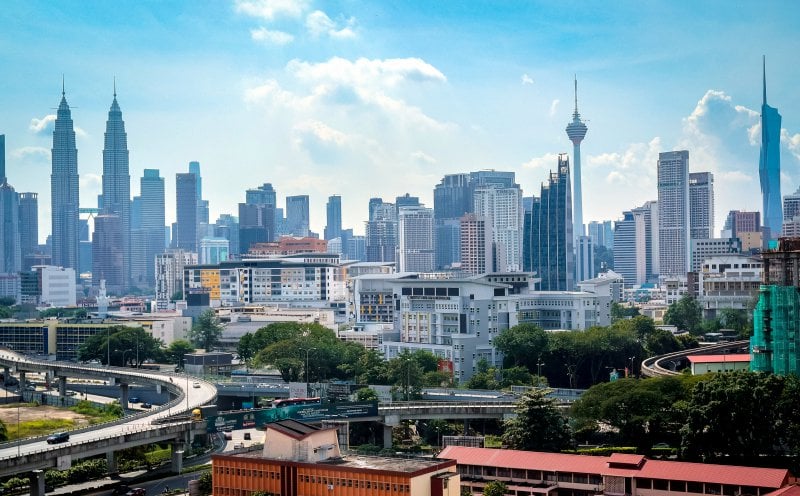BRUSSELS: The government will fight against any discriminatory trade practices against Malaysia's agricommodity sector, says Deputy Prime Minister and Plantation and Commodities Minister Datuk Seri Fadillah Yusof.
As a producing and trading country, Malaysia is deeply concerned over the implementation of the law and the implications not only for palm oil but also its other main commodities such as timber, cocoa, and rubber, said Fadillah, who is on a Malaysia-Indonesia joint trade mission to the European Union (EU) to defend the palm oil industry following the implementation of the European Union Deforestation Regulation (EUDR).
"Some aspects of the risk-assessment process of the regulation are counter-productive to commitments to curb global deforestation and run the risk of disincentivising producing countries," he said at the luncheon with the Malaysian diaspora here today.
Fadillah pointed out that the implementation of the regulation, announced by the EU on Dec 6 last year is based on unsound reasoning and has a weak scientific basis.
The EU is currently developing due diligence reporting to ensure companies comply with the EUDR.
"It places additional burdens on Malaysian palm oil exporters to the EU market, specifically on the additional traceability requirements and data that must be provided to end-customers based in the EU," he said.
The EU accounts for 9.4 per cent of Malaysia's palm oil export volume or 1.47 million tonnes.
Fadillah said Malaysia values the EU as one of its important trading and investment partners.
However, Malaysia sees EUDR as a deliberate act by Europe to block market access and protect its domestic oilseeds market, which is inefficient and cannot compete with the cost of palm oil.
Such a unilateral initiative, he said, is detrimental to free and fair trade and could adversely impact the global supply chain as well as lead to higher food prices and reduced output at a time of record global inflation.
Fadillah said the debates within the EU over palm oil and biofuel sustainability issues reflect a lack of knowledge and deep understanding about the topic and the rising concern that the bloc is driven by an overly political agenda.
"I want to reiterate that come what may, Malaysia will continue the battle to promote the positive image of Malaysian agricommodity products and prove what we can do best in adhering to sustainable production and consumption," he said.
For Malaysia, the United Nations Sustainable Development Goals remain the utmost priority.
"We have embarked on sustainability initiatives, including national certification schemes, such as the Malaysian Sustainable Palm Oil (MSPO) certification scheme, Malaysian Timber Certification Scheme (MTCS) and Sustainable Forest Management (SFM) practices, with a view to facilitating access into the EU single market," he said.
Fadillah said the MSPO standard already guarantees Malaysia's commitment to comprehensive sustainability standards.
These standards show the country's strong commitment and efforts to provide sustainable and deforestation-free palm oil to its European and global customers.
Therefore, he said, there is no need to add further costs and burdens to the industry, particularly to the smallholders, which will negatively impact their welfare and livelihood.
The agricommodity sector has not only become a poverty elevation tool but also plays a significant contribution in reviving the Malaysian economy back on track post-pandemic, he said.
"I firmly believe that this ministry (Plantation and Commodities Ministry) is essential in spearheading the agricommodity trade and ensuring the sector is well-governed, particularly in protecting the livelihood of more than 700,000 smallholders with our initiatives and efforts, (and) at the same time, during these challenging times, providing job and business opportunities along the supply chain," he said.
Hence, Fadillah said, the government has remained steadfast in its efforts to mitigate these challenges and fight these baseless allegations.
"It is with this mandate my ministry decided to show the world Malaysia's strong positions, commitment and initiatives towards a sustainable agricommodity sector," he added. – BERNAMA
















